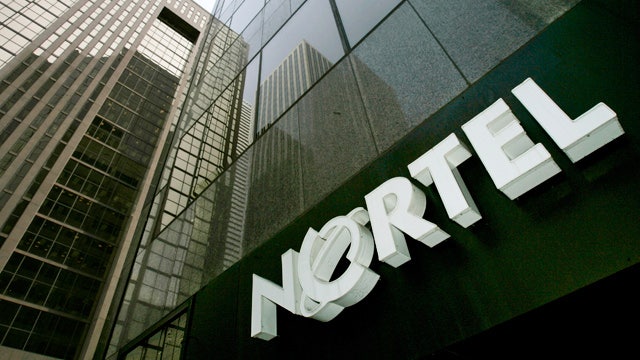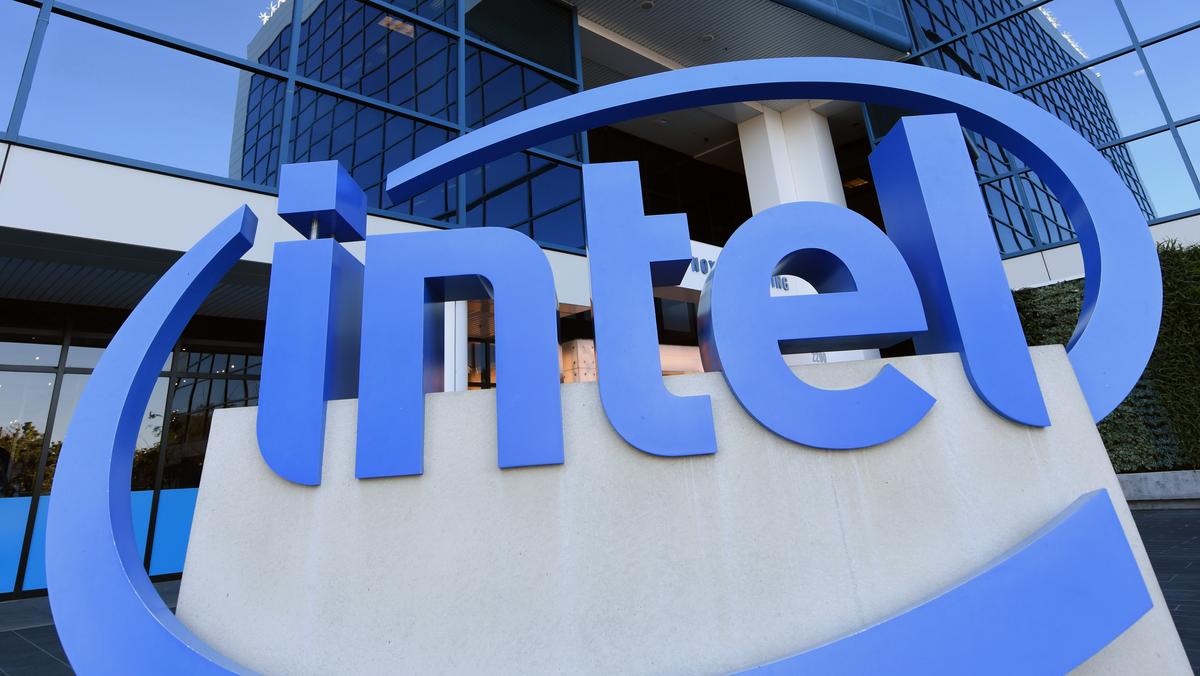By now, you’ve surely heard that a consortium of huge tech companies have won the auction for Nortel’s portfolio of telecommunications patents. The consortium, which includes Apple, Microsoft, Sony, RIM, Ericsson, and EMC, will pay $4.5 billion in cash for more than 6,000 patents, beating out Google, which originally offered just $900 million for the portfolio. That’s great and all — but what inventions do patents actually cover? What does today’s winning bid actually mean for the consortium, for Google, and for us?
First of all, it’s important to note that no one really knows the extent of Nortel’s patent portfolio. We know the rough areas that they cover, but when considered in their entirety, with every legally-interpreted permutation, it’s impossible to state what offensive and defensive abilities the portfolio will grant the consortium. This is one of the reasons that a consortium bought the patents, instead of a single entity — they can work out who needs which patents after the dust has settled.
The sell-off of bankrupt Canadian telecom giant Nortel is reaching its end stages, with a multi-day auction of over 6,000 patents and patent applications belonging to the company selling to a.
Curiously, Ericsson has already gone on the record and said it pitched in $340 million, while RIM added no less than $770 million to the pot. It’s not known how much the other members have paid to be part of the consortium, but the variety of investment does indicate that some companies “needed” the patents more than others. Ericsson, which has been a big player in telecommunications for as long as Nortel, probably won’t need the GSM, 3G, and 4G patents — while Microsoft, Apple, and Sony all desperately need to bolster their mobile patent portfolios to protect themselves from Nokia.
It’s also worth noting that Microsoft was meant to have a worldwide, perpetual, royalty-free license for every single one of Nortel’s patents — but the fact that it’s part of the auction-winning consortium would suggest that its legal footing was a little shaky, and didn’t want to test the terms of its license with Google at the helm of the portfolio.
With all that said, Nortel’s portfolio can be broken down into 5 categories: telephony; internet, search and social networking; mobile phones and networks (GSM, 3G, and 4G LTE); data networking (optical and electrical); and semiconductors. It’s impossible to detail every significant patent, but here’s a taste of the more human-readable ones:
- Telephony: 5905789, covering adaptive call forwarding (similar to Google Voice); 5917891, covering adaptive voice dialing
- Internet: 6092196, covering distributed HTTP authentication; 6397248, covering network detection and possibly peer-to-peer communications
- Mobile: 6084951, covering just about any smartphone address book, or WP7’s Live Tiles; 6115754, covering geo-tagging of mobile messaging
- Networking: 5802043, covering ring-topology networks (like cable internet); 5878228, detailing a high-speed data transfer technique
- Semiconductors: 5742557, covering multi-port RAM; 5561265, covering the dielectric packaging of integrated circuits
- A consortium comprising Apple, EMC, Ericsson, Microsoft, Research In Motion, and Sony has purchased Nortel Networks' remaining patent portfolio for $4.5 billion in an auction that began earlier.
- A group including Apple and Research In Motion has paid $4.5 billion to snatch Nortel Networks' patents from under the noses of Google and Intel, stealing a march on their rivals in a litigious.
As you can see, there’s a huge range of rather juicy patents — and when you realize that Google only has around 600 patents of its own, mostly covering its primary search product, you can see why it really, really wanted a piece of the Nortel pie. Google’s primary business is well protected, but as it invests more and more effort into Android and the mobile space, it has almost zero protection from older tech juggernauts. This is the reason that Google is being sued by Oracle, and why Microsoft has successfully levied royalties from manufacturers of Android devices. Nortel’s patent portfolio would’ve provided a modicum of defense from both patent trolling and earnest litigation — but now, having lost the auction, Google is in an even weaker position.

Finally, to put Google’s tiny patent portfolio and this $4.5 billion auction bid into perspective, get this: IBM regularly patents thousands of inventions every year — and in 2010, it broke its own record by registering no less than 5,896 patents — just shy of Nortel’s complete portfolio of around 6,000 patents. Samsung was in second place, with 4,511 new patents, and Microsoft rounded out the top three with 3,094.
Read more about the Nortel patent portfolio acquisition
Canada-based telecom Nortel went bankrupt in 2009 and sold its biggest asset—a portfolio of more than 6,000 patents covering 4G wireless innovations and a range of technologies—at an auction in 2011.
Google bid for the patents, but it didn't get them. Instead, the patents went to a group of competitors—Microsoft, Apple, RIM, Ericsson, and Sony—operating under the name 'Rockstar Bidco.' The companies together bid the shocking sum of $4.5 billion.
Patent insiders knew that the Nortel portfolio was the patent equivalent of a nuclear stockpile: dangerous in the wrong hands, and a bit scary even if held by a 'responsible' party.
This afternoon, that stockpile was finally used for what pretty much everyone suspected it would be used for—launching an all-out patent attack on Google and Android. The smartphone patent wars have been underway for a few years now, and the eight lawsuits filed in federal court today by Rockstar Consortium mean that the conflict just hit DEFCON 1.

Google probably knew this was coming. When it lost out in the Nortel auction, the company's top lawyer, David Drummond, complained that the Microsoft-Apple patent alliance was part of a 'hostile, organized campaign against Android.' Google's failure to get patents in the Nortel auction was seen as one of the driving factors in its $12.5 billion purchase of Motorola in 2011.
Rockstar, meanwhile, was pretty unapologetic about embracing the 'patent troll' business model. Most trolls, of course, aren't holding thousands of patents from gigantic technology companies. When Rockstar was profiled by Wired last year, about 25 of its 32 employees were former Nortel employees.
The suits filed today are against Google and seven companies that make Android smartphones: Asustek, HTC, Huawei, LG Electronics, Pantech, Samsung, and ZTE. The case was filed in the Eastern District of Texas, long considered a district friendly to patent plaintiffs.
The lawsuits
The complaint against Google involves six patents, all from the same patent 'family.' They're all titled 'associative search engine' and list Richard Skillen and Prescott Livermore as inventors. The patents describe 'an advertisement machine which provides advertisements to a user searching for desired information within a data network.'
Advertisement/cdn.vox-cdn.com/uploads/chorus_asset/file/15795304/patent-illustration.0.1523086800.jpg)
The oldest patent in the case is US Patent No. 6,098,065, with a filing date of 1997, one year before Google was founded. The newest patent in the suit was filed in 2007 and granted in 2011.
The complaint tries to use the fact that Google bid for the patents as an extra point against the search giant. 'Google subsequently increased its bid multiple times, ultimately bidding as high as $4.4 billion,' wrote Rockstar's lawyers. 'That price was insufficient to win the auction, as a group led by the current shareholders of Rockstar purchased the portfolio for $4.5 billion. Despite losing in its attempt to acquire the patents-in-suit at auction, Google has infringed and continues to infringe the patents-in-suit.'
The suits against the six manufacturing companies each assert the same patents—either six or seven of them, depending on the target. The patents cover a variety of innovations and have different inventors. One patent filed in 1997 for a 'navigation tool for graphical user interface' describes a way of navigating through electronic documents. Another describes an 'Internet protocol filter,' and a third patent describes an 'integrated message center.'
The manufacturer lawsuits name the targets' whole array of smartphones and tablets. The lawsuit against Huawei, for instance, claims the infringing products include 'the Huawei M865 MUVE, Huawei Ascend II, and Huawei Premia 4G M931, and Huawei’s family of tablets, including but not limited to the Huawei MediaPad and Huawei IDEOS S7 Slim.'
Rockstar has employed two different law firms to file the suits; both firms have patent experience and experience litigating in the Eastern District of Texas. The Google search suit is being handled by Susman Godfrey, which has taken on other sue-the-world patent cases, like Paul Allen's lawsuits against Facebook, Google, and others.
The manufacturer suits, meanwhile, are being handled by McKool Smith, a formidable Texas law firm that has probably wrung more massive verdicts out of tech companies than any other firm. It scored $368 million from Apple for VirnetX, $290 million from Microsoft over i4i's XML patent, and most recently notched a $173 million verdict against Qualcomm.
AdvertisementThe ultimate “patent privateer”
When Wired visited Rockstar's Ontario headquarters, it found 10 reverse-engineering experts, working daily to take apart products and find patent infringement. With just a few dozen employees, Rockstar is hoping to convince more than 100 technology companies to pay it patent licensing fees for a huge array of products. 'Pretty much anyone out there is infringing,' said Rockstar's CEO, John Veschi.

Nortel Patents Fetch $4.5 Billions
The Rockstar Consortium may be the ultimate example of patent 'privateering'—when big companies hand off their patents to small shell companies to do the dirty work of suing their competitors. Essentially, it's patent trolling gone corporate.
The 'privateering' phenomenon has long irked Google. In February, when Google filed a patent lawsuit against British Telecom, it said one of the reasons for the suit was that BT had not only sued Google directly, but it had also gone around 'arming patent trolls.'
Part of Rockstar's strategy is avoiding a patent countersuit by not having any operating businesses. Essentially, the company wants to enjoy the same advantage patent trolls have, even though it's owned by direct Google competitors like Apple and Microsoft.
'The principals have plausible deniability,' said Thomas Ewing, an IP attorney who spoke to Wired about Rockstar. 'They can say with a straight face: ‘They’re an independent company. We don’t control them.’ And there’s some truth to that.'
And Rockstar's CEO was quite straightforward about his belief that whatever promises Microsoft and Apple might have made about how they'll use their patents, those promises don't apply to Rockstar. “We are separate,” he says. “That does not apply to us.”
Rockstar may want to keep the patent conflict as a kind of 'proxy war' between Google and its competitors. But Google has plenty of patents, and this new attack seems assured to bring a counterattack.
Nortel Patents Fetch $4.5 Billionaire
The smartphone market is more valuable than ever, and the $4.5 billion Rockstar purchase shows that Google's competitors will spare no expense to put a damper on Android, and they hope to make money while they do it. Patents have become the arena in which tech companies have chosen to do battle. Six years after the iPhone and five years after the launch of Android, the stakes keep getting raised.
